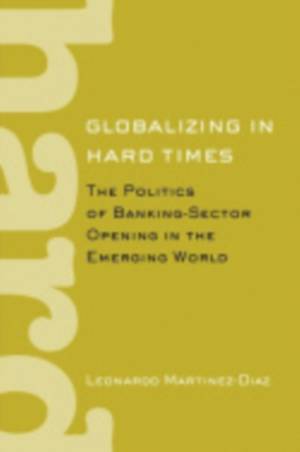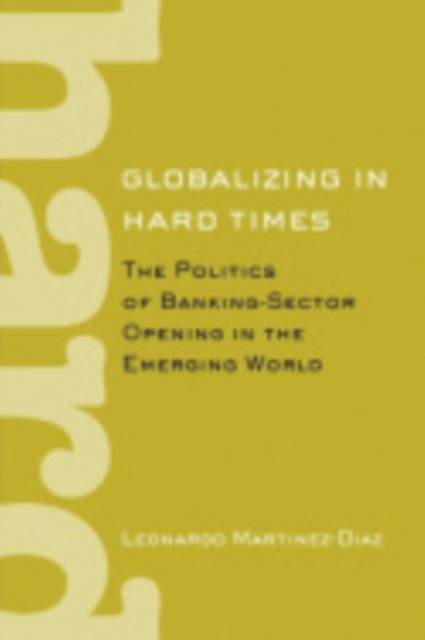
- Retrait gratuit dans votre magasin Club
- 7.000.000 titres dans notre catalogue
- Payer en toute sécurité
- Toujours un magasin près de chez vous
- Retrait gratuit dans votre magasin Club
- 7.000.000 titres dans notre catalogue
- Payer en toute sécurité
- Toujours un magasin près de chez vous
Globalizing in Hard Times
The Politics of Banking-Sector Opening in the Emerging World
Leonardo Martinez-DiazDescription
In Globalizing in Hard Times, Leonardo Martinez-Diaz examines the sudden and substantial increase in cross-border ownership of commercial banks in countries where bank ownership had long been restricted by local rules. Many parties--the World Bank and the IMF, the world's largest commercial banks, their home governments, and their negotiators--had been pushing for a relaxation of ownership rules since the early 1980s and into the 1990s, when bank profitability levels in advanced industrial societies went flat. In their hunt for higher returns on assets, the major banks looked to expand business overseas, but through the mid-1990s their efforts to impose more liberal ownership regimes in nationalist countries proved largely unsuccessful.Martinez-Diaz illustrates the ongoing political resistance to liberalized ownership rules in Mexico, Indonesia, Brazil, and South Korea. He then demonstrates the importance of a series of events--the Mexican crisis and the Brazilian banking shock in 1994-1995 and the Asian crisis of 1997-1998 among them--in finally knocking down barriers to foreign ownership of banks. After these upheavals, policymakers who were worried about their political survival--and who were sometimes pressed by the IMF and foreign governments--reshaped the regulatory environment in key emerging markets. Self-proclaimed global banks eagerly grasped the opportunity to expand their operations worldwide, but after the initial shock, domestic politics reasserted themselves, often diluting the new, liberal rules.
Spécifications
Parties prenantes
- Auteur(s) :
- Editeur:
Contenu
- Nombre de pages :
- 256
- Langue:
- Anglais
- Collection :
Caractéristiques
- EAN:
- 9780801447556
- Date de parution :
- 15-11-09
- Format:
- Livre relié
- Format numérique:
- Genaaid
- Dimensions :
- 160 mm x 234 mm
- Poids :
- 498 g







